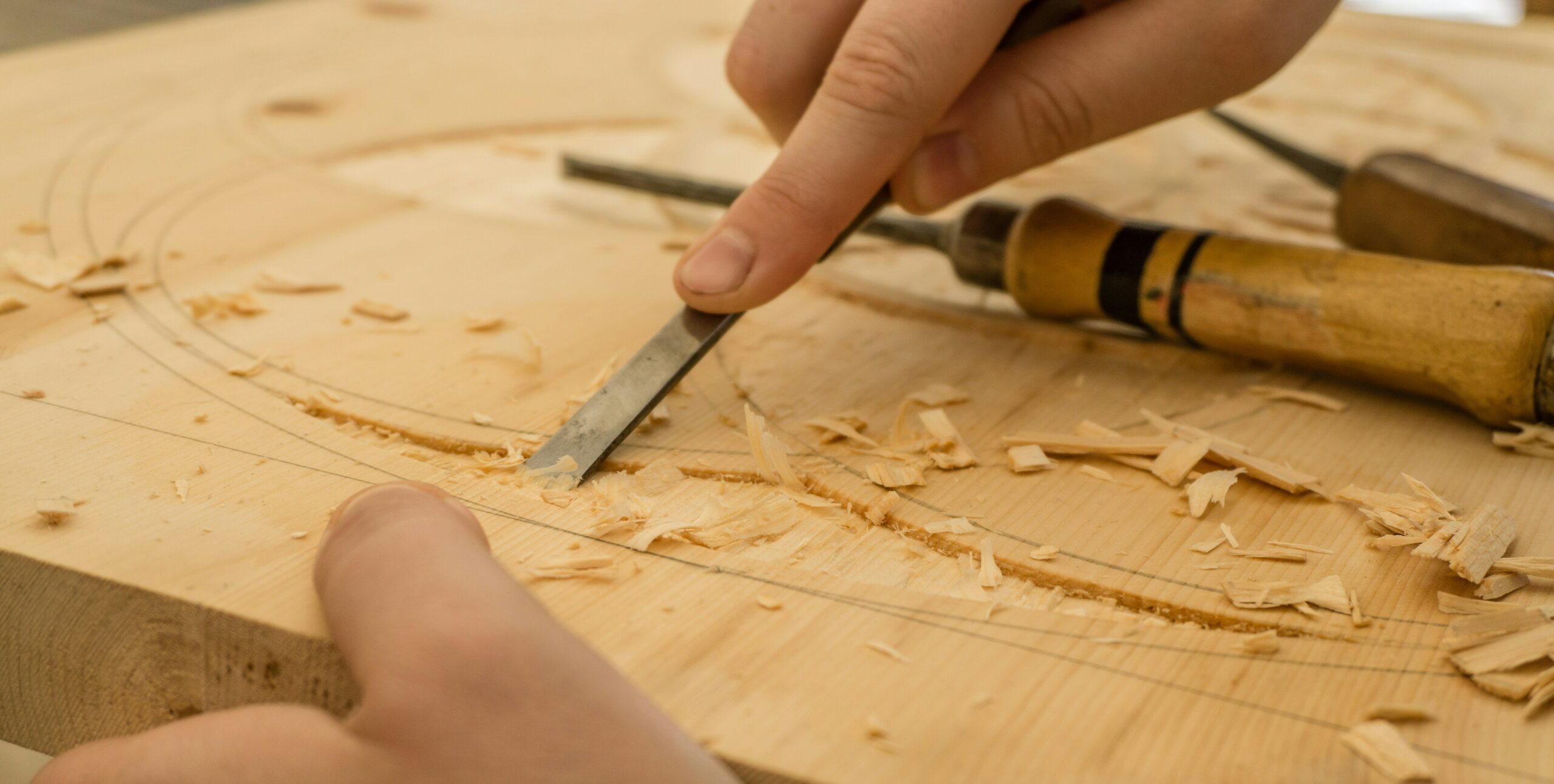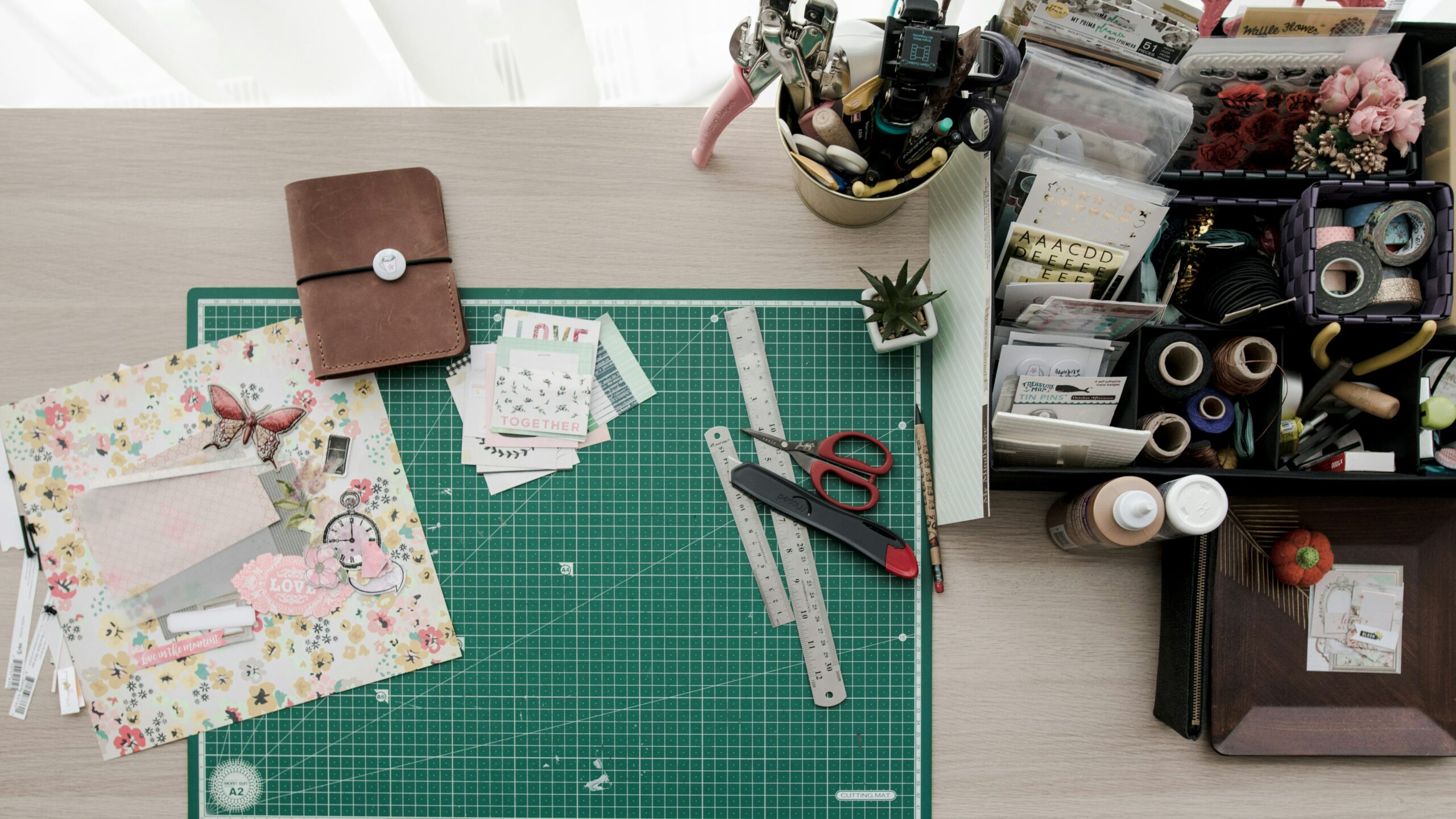The UK’s handmade craft industry is thriving, with annual sales exceeding £3 billion and 73% of adults purchasing handmade goods in recent years. This surge in demand is fuelled by a growing appreciation for quality, authenticity, and sustainability, as well as the convenience of e-commerce platforms like Etsy and Notonthehighstreet.com. In fact, over 10 million Brits now buy crafts online, a figure that has tripled over the past decade. Consumers are increasingly drawn to unique, eco-friendly products that stand out from mass-produced alternatives, making this an exciting time for artisans to turn their passions into profitable businesses.
However, with opportunity comes responsibility. The laws on selling handmade items in the UK requires compliance with a range of legal regulations designed to protect consumers and ensure product safety. From registering your craft business with HMRC, meeting specific safety standards for toys, candles, and cosmetics, to obtaining the right Craft Insurance, understanding these rules is essential.
Do I Need a Licence to Sell My Craft Products?
While crafting as a hobby doesn’t typically require formal registration or licences, turning it into a craft business may involve additional legal obligations depending on what you sell and where you sell it.
1. Selling Food or Alcohol
If your handmade products include food items (e.g., baked goods, jams) or alcohol (e.g., homemade spirits), you must comply with strict regulations:
- Food Products: You are required to register as a food business with your local council at least 28 days before starting to trade. This is free and ensures compliance with food hygiene laws under the Food Safety Act 1990. Your premises will be inspected to confirm they meet hygiene standards.
- Alcohol: Selling alcohol requires a personal licence under the Licensing Act 2003. You’ll also need to apply for a premises licence if you sell from a specific location. Age verification policies must be in place to comply with laws on selling age-restricted products.
2. Selling at Markets or Fairs
If you plan to sell your crafts at local markets or fairs, you may need:
- A market stall licence or street trading permit, depending on the local council’s requirements.
- Proof of public liability insurance, which is often mandatory to protect against claims if someone is injured or their property is damaged due to your stall or products.
3. Business Premises
If you operate from premises outside your home (e.g., a workshop or retail space), additional permissions may be required. For example:
- Planning permission may be necessary if you have customers visiting your premises.
- Health and safety inspections may apply depending on the nature of your business.
To determine whether you need a licence, use the UK Government’s Licence Finder Tool, which provides tailored advice based on your activities and location.

Regulations for Selling at Craft Fairs or Markets
Craft fairs and markets are excellent venues for showcasing handmade goods, but they come with specific legal requirements.
Public Liability Insurance
Public liability insurance is essential when selling at markets. It protects you against claims if someone is injured or their property is damaged due to your stall setup or products. Most market organisers will require proof of insurance before allowing you to trade.
Risk Assessments
Conducting a risk assessment ensures that your stall complies with health and safety standards. Key considerations include:
- Ensuring your stall setup is stable and secure.
- Safely storing sharp tools, hazardous materials, or heavy objects.
- Testing electrical equipment (e.g., lighting) for safety compliance through Portable Appliance Testing (PAT).
Venue-Specific Rules and Permits
Each market or fair may have unique rules regarding:
- Stall dimensions and placement.
- Operating hours.
- Waste disposal and cleanliness requirements.
Always check with event organisers in advance to understand their specific requirements.
Food Hygiene Standards
If selling food items at craft fairs:
- Register as a food business with your local council at least 28 days before trading. This applies to all premises, including market stalls and home-based businesses
- You must comply with hygiene regulations outlined by the Food Standards Agency (FSA).
- Allergen labelling must be clear and accurate.
- Proper storage and handling practices must be followed to ensure food safety during transport and display.
Regulations for Selling Handmade Products Online
Selling crafts online has become increasingly popular thanks to platforms like Etsy, Folksy, and Amazon Handmade. However, online trading comes with its own set of legal requirements.
Consumer Contract Regulations 2013 (CCR) Compliance
The Consumer Contract Regulations protect customers purchasing products online. As an online seller, you must:
- Provide clear product descriptions that include dimensions, materials used, care instructions, and any potential hazards.
- Display pricing transparently, including VAT where applicable.
- Offer customers a 14-day cancellation period during which they can return items without providing a reason.
- Issue refunds promptly if requested within this period.
These rules apply whether you sell through an established platform like Etsy or via your own website.
Platform-Specific Rules
Each e-commerce platform has its own policies that sellers must adhere to:
- Etsy requires sellers to comply with all applicable laws in their jurisdiction.
- Folksy limits sales to handmade items created by the seller or their team.
Failure to follow these platform-specific rules can result in account suspension or penalties.
Data Protection and Privacy Laws (GDPR)
If you collect customer data—whether through email marketing, website forms, or order processing—you must comply with the General Data Protection Regulation (GDPR). This includes:
- Gaining explicit consent before collecting personal information.
- Providing customers access to their data upon request.
- Storing data securely to prevent breaches.
Non-compliance with GDPR can result in significant fines, so it’s crucial to implement robust data protection measures.

Do I Need to Be a Registered Business to Sell on Etsy UK?
No, you don’t need to register as a business to sell on Etsy UK initially. However, if your annual income from Etsy sales exceeds £1,000, you must register as self-employed with HMRC and declare your earnings through a self-assessment tax return. This threshold is part of the UK’s trading allowance, which applies to small-scale sellers.
Even if your income is below £1,000, it’s wise to keep detailed records of all transactions for tax compliance and future reference. Additionally, while Etsy itself doesn’t require a business licence, you must follow UK laws applicable to small businesses, such as consumer protection regulations and GDPR for handling customer data.
For sellers earning consistently or running a larger operation, registering as a sole trader or limited company may provide financial and legal benefits. Always consult HMRC guidelines or a professional adviser if unsure about your obligations.
Essential Legal Guidelines for Selling Different Handmade Crafts
Selling Handmade Toys
Handmade toys must comply with the Toy Safety Regulations 2011, which ensure products are safe for children under 14.
- Toy Safety Regulations Compliance: Toys must meet essential safety standards, including being free from choking hazards and toxic materials. A safety assessment is required to identify potential risks.
- UKCA and CE Marking: Toys sold in Great Britain require UKCA marking, while those sold in Northern Ireland or the EU need CE marking. These marks confirm compliance with safety standards such as EN 71, covering flammability, mechanical properties, and chemical composition.
- Safety Testing and Documentation: Physical tests (e.g., flammability, tension) must be conducted, and a technical file must be maintained, including a Declaration of Conformity and testing records.
Selling Homemade Candles
Homemade candles are regulated under the General Product Safety Regulations (GPSR) 2005, ensuring they are safe for use.
- CLP Regulation Compliance: Candles containing fragrances or essential oils must comply with the Classification, Labelling, and Packaging (CLP) Regulation. Labels should include hazard warnings, allergen information, and supplier details.
- Risk Assessments: Identify potential risks such as fire hazards or unstable designs to ensure product safety.
- Proper Labelling: Include instructions for safe use (e.g., trimming wicks) and fire safety warnings to avoid fines or recalls.
Selling Handmade Clothing
- Handmade clothing must comply with UK textile labelling laws to ensure transparency and consumer safety.
- Textile Labelling Regulations: Labels must specify fibre composition (e.g., 100% cotton) and care instructions (e.g., washing temperature). Misleading labels are prohibited under consumer protection laws.
- Fire Safety Standards: Clothing such as sleepwear may need to meet fire resistance standards under the Nightwear (Safety) Regulations 1985.
- Product Safety: Ensure materials are non-toxic, seams are secure, and there are no choking hazards like loose buttons or embellishments.
Craft Food Safety Regulations
Selling food products requires compliance with the Food Safety Act 1990 to protect public health.
- Food Business Registration: Register your food business with your local council at least 28 days before trading. Your premises will be inspected for hygiene compliance.
- Allergen Labelling: Clearly label allergens (e.g., nuts, gluten) in compliance with Natasha’s Law for pre-packaged foods.
- Hygiene Standards: Maintain cleanliness in preparation areas and follow Hazard Analysis and Critical Control Points (HACCP) guidelines to manage food safety risks effectively.

Cosmetic Products Compliance
Cosmetic Regulation (EC) No 1223/2009
Cosmetic products sold in the UK must comply with Regulation (EC) No 1223/2009. This ensures products are safe for human use, correctly labelled, and marketed without misleading consumers.
Cosmetic Product Safety Reports (CPSR)
Handmade cosmetics like soaps or bath bombs require CPSR testing to ensure they meet UK/EU cosmetic safety standards before sale. This involves laboratory testing for skin safety and toxicity levels.
CLP Regulations for Essential Oils
Products containing essential oils or hazardous substances must comply with CLP labelling requirements, highlighting allergens or risks associated with use.
Hallmarking Regulations for Jewellery
Legal Requirements for Precious Metals
Jewellery made from gold, silver, platinum, or palladium must be hallmarked if it exceeds certain weight thresholds (e.g., 1 gram for gold). This hallmark verifies the metal’s purity and legality for sale in the UK.
Registration with UK Assay Offices
To legally sell jewellery containing precious metals, you must register with one of the UK’s four assay offices (London, Birmingham, Sheffield, or Edinburgh). Submit your items for testing and hallmarking before offering them for sale.
By following these regulations across different craft categories, you can ensure your handmade products meet legal standards while building trust with customers. Always consult relevant authorities or professional advisers if you’re unsure about specific compliance requirements for your craft business.
Why Choose CMTIA for Your Craft Insurance
As a crafter, navigating the complex landscape of UK laws and regulations can be daunting, especially when it comes to ensuring your business is properly insured. Choosing the right insurance provider is crucial to protect your craft business from potential risks and liabilities, whether you’re selling handmade toys, candles, clothing, or food items.
CMTIA stands out as a trusted partner for crafters due to its deep understanding of the unique challenges faced by artisans. With our Crafters Insurance policies starting at just £65 per year, CMTIA covers everything from customer claims to stall damage, giving you peace of mind to focus on your business. Apply online to protect your business today.



